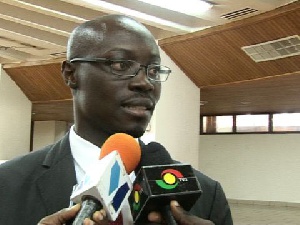The marriage of convenience between Franklin Cudjoe’s IMANI Ghana and Dr. Kwabena Dufour’s Institute of Fiscal Studies (IFS) will hit the rocks in no time, as the Ministry of Finance and Economic Planning has come out with the true picture of affairs as far as hedging of petroleum is concerned.
This is because their first outing as a couple with common agenda of painting gloomy a picture of Ghana’s economy and running down top officials of the Ministry of Finance and Economic Planning (MOFEP) has been a disaster.
The two ‘think tanks’ took up issues with the MOFEP and its minister, Mr. Seth Terkper, as to why hedging for petroleum had ceased, and blamed the minister for causing financial loss of Ghc2.7 billion to the state.
IMANI Ghana and IFS in a joint press conference held last Tuesday and addressed by Professor Newman Kusi, among other things questioned why the Ministry of Finance has stopped hedging and that the total revenue and grants for 2015 which was revised to Ghc29.7 billion instead of Ghc32.4 has resulted in a shortfall of Ghc2.7 billion, claiming that the minister should be hanged for that.
In a strong-worded statement by Deputy Minister, Cassiel Ato-Forson, MOFEP says the issues raised by IMANI Ghana and IFS were objectionable.
According to the statement copied to The Enquirer yesterday, It was wholly inaccurate for the two think tanks to state and thereby imply categorically that the hedging programme ended when the current minister and his team were entrusted by the President with the task of reviving the nation’s economy in 2013.
“It is also a fact that the end of the period which IMANI Ghana and IFS referred to, in spite of active implementation of the hedge, had one of the worst deficit on record (2012) from which the economy is still recovering,” it said.
It said: “The causes of the deficit included petroleum and other subsidies as well as unpaid promissory notes and foreign exchange losses that should form part of a comprehensive assessment of a petroleum hedging programme. This is contrary to claims about hedging" contributing to one of the longest periods of monetary and fiscal stability.
It said that if the two institutions had bothered to check, they would have found out that the hedging programme continued well into 2013 under the current minister, before being subjected to a review as part of government’s broader review of the petroleum pricing formula and associated under-recovery challenges in the downstream petroleum sector including foreign exchange losses claims by importers that was accepted and legitimized in 2012.
“The review was done upon advice of the Inter-Ministerial technical team that conducted the exercise, after realizing that the hedging programme at the time was fiscally unsustainable,” it said.
It is worth pointing out that under the then hedging programme, option premiums were either settled through issuing of bonds (thus increasing the deficit and debt stock) or through accumulated windfalls from end-period hedge settlements. That could not be sustained and the objective of the review was therefore to achieve a consistent and sustainable source of funding.
The review was concluded in September 2014 when Cabinet approved a set of recommendations to address the challenges indentified by the technical committee. These included the alignment of the hedge programme with National Petroleum Authority’s Price Build Up (PBU) and provision for hedging premium within the mitigating account.
Following the success of the review, the implementation of the hedge programme has resumed. As large hedging contracts are very much sensitive to information, especially with counterparties involved, the ministry does not disclose the build-up of its hedge book.
The statement said that production hedge, which seems to be the major subject of IMANI Ghana and IFS, was unsustainable in its initial form.
“The Petroleum Revenue Management Act (PRMA) which governs the management of oil revenues did not provide mechanism for paying the premiums to hedge oil revenues,” it said.
It said: “Funding for the premiums of the limited hedging that was undertaken mainly came from the accumulated proceeds of the consumption hedge. The Ministry of Finance is proposing to incorporate the hedge premiums as part of the budget of the national oil company under PRMA.”
“It is misleading to imply that counterparty banks underwrite hedging contracts. That is certainly not the case. Counterparties trade for cash (settlement) whether upfront or deferred basis. Underwriting can thus, only occur if counterparty banks lend money to Ghana to pay for the hedge- just like any other borrowing or recurrent expenditure,” it said. The statement said that the claims of ‘causing financial loss’ was rather unfortunate as number of factors are considered before deciding whether or not to opt for hedge contract.
“Indeed deciding not to actually hedge for any given period, based on the peculiar circumstances of the oil market and the projected direction of the prices in both short and medium term, can also constitute a hedge,” it said.
It said: “If there is one particular market that epitomizes the maxim that forecasting is an inexact science, then certainly the crude oil market. Its inherent volatility means that very few institutions and individuals regardless of expertise and years of experience in the business can lay claim to a record of inconsistent profitability of a hedging position. It is therefore unfair to use price information after the facts to launch attacks.”
The statement said Parliament was yet to approve any interest rate risk management programme.
General News of Wednesday, 8 April 2015
Source: Moses Ayambi













